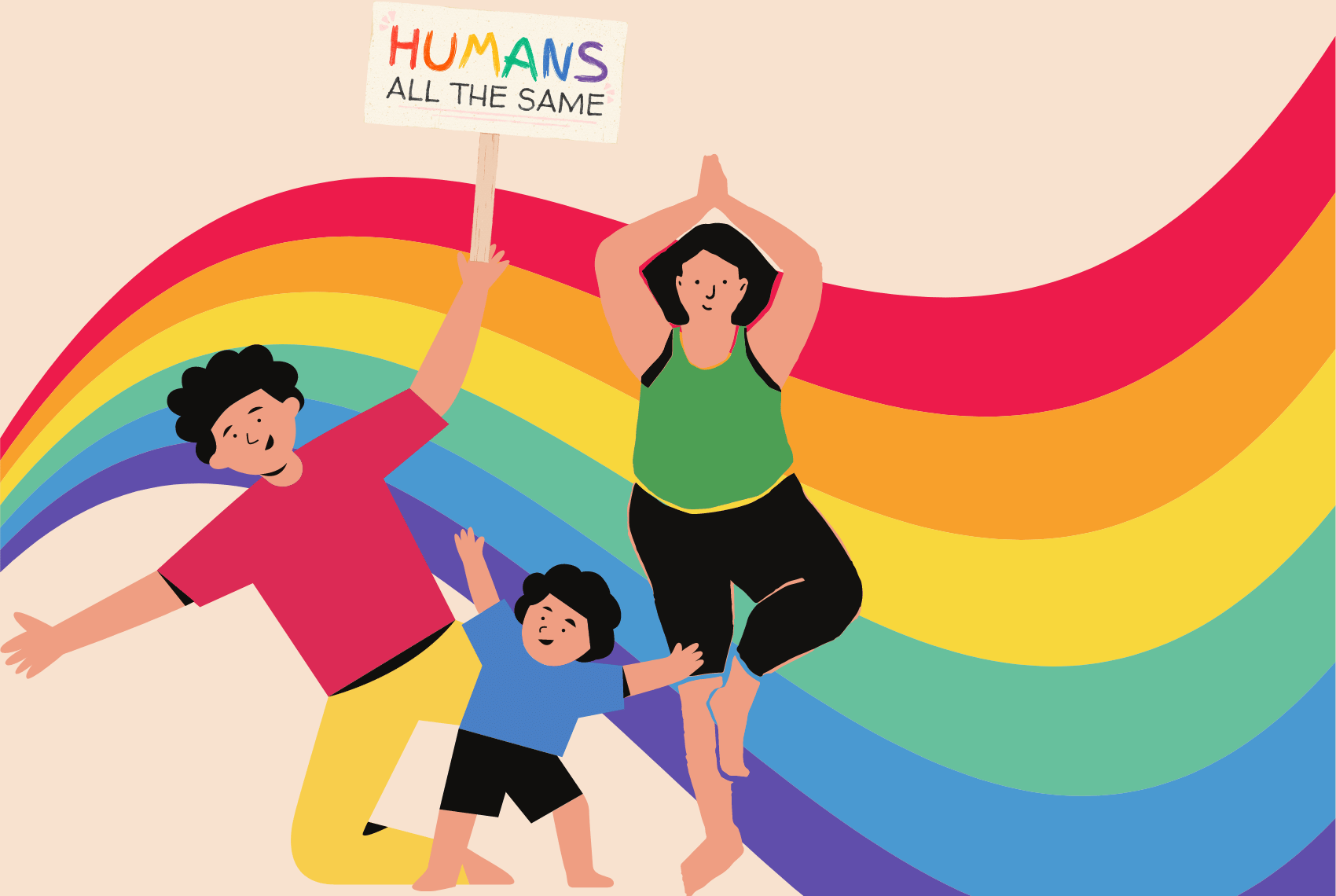It's the conversation some parents may not be looking forward to having with their child. The idea of having to talk about sexual attraction to a minor, and even explain the different kinds of sexuality and gender identity makes every parent find many reasons to put it off.
But when we see that now even Disney movies like Strange World starring an openly gay teenager - whose sexuality is not even a central theme of the story, because it is not considered something remarkable - then we understand that sooner or later the moment will come that the child itself will wonder and say "mom/dad why is this boy kissing another boy or why is this girl kissing another girl?". We imagine that the success of Maestro last season, which hosted a kiss between two boys, also prompted this question to many children who watched the serial, as well as the conversation that has started in society on the occasion of the award-winning short film “Boys in the Shower" which was recently shown in a primary school and caused a frenzy in the conservative public of Greece.
Without even having seen the film which does not deal with the sexuality of young boys, a part of the world was quick to condemn the film highlighting the darkest reflexes of people who do not understand the need to talk about diversity and sexuality even at a young age and as part of school education through a sex education course harmonized with the modern terminology of the global scientific community around gender and sexuality. At this point, let's say the Greek translation of the term diversity is exactly the same with the english term, but “variety”, as each sexual orientation, gender expression or gender identity is not a deviant situation from some supposed norm, but another, equal manifestation of the attraction they experience people and their self-determination.

So as difficult as this conversation around sexuality may seem, the reality is that it should be done when your child has a question about the topic. This can happen even at the age of 6 or 7 when many experience the first signs of their sexuality, or even earlier if some stimulus from their environment causes them to ask this question. So the right moment is when the child asks the question himself, after there is some stimulus that has caused it. This is the right time for many reasons. First, for your child to feel safe that this is something acceptable, something normal, so that he can open up to you in the future if he feels that he belongs to the LGBTQI+ community. Sexuality is not an acquired trait, so it is very important to create a safe environment for a child to discover it without fear. But it's even more important as a parent to raise a person who will be receptive to diversity, who will show respect for people in the LGBTQI+ community - even if he doesn't belong himself - and who will become an active ally of queer people who will encounter in his life thus overall improving the whole society.
This conversation can be had even if you don't know much about terms like 'gender identity or expression', or jargon like 'pansexual'. After all, the most important thing you have to convey to the child is - or rather should be - self-evident: that all people are equal and have the same rights in society and in love. Because sexuality is mostly related to who each person can love. And we should all have the right to be able to be ourselves, exactly how we feel without being afraid of it. Neither gender and its expression, nor a person's sexual orientation should ever be a reason for discrimination and abusive behavior.
But beyond words and theory, everyone knows that children don't do what their parents tell them, but what they see their parents do. That's why the most important thing a parent can do is to treat everyone around them with empathy and kindness and to talk openly about the LGBTQI+ people around them or in the public sphere. To never make homophobic and transphobic comments, and not allow others to do so in front of their child, even when it comes to bad jokes from relatives of previous generations. Apathy to such a thing can be interpreted as acceptance by a child. It is not enough not to laugh, you have to become unpleasant in such situations and respond to the abusive speech, because this is the only way to show the child that demeaning LGBTQI+ people is not a socially acceptable behavior. This attitude of yours will also make your child feel safe to express questions about his sexuality to you, since he will know that you will accept him and not judge him in any way.
However, it would be helpful for you to know some basic things in case your child has questions. Which is always possible. So let's start with the basics.
There is biological sex (sex) and social sex (gender) and sometimes these two are not the same. And that's okay. Sometimes a person internally experiences a different gender than the one identified at birth according to chromosomes and external characteristics. Those whose sex and social gender are identical are called cis, while those who do not identify, trans.
When it comes to sexual orientation, it's about the romantic attraction one feels for other people, and their gender can also be different than what we think is expected, and that's okay too.
Depending on the age at which this conversation takes place with your child, you can use different terminology. You don't need to put the above complex terms into your conversation with a fairly young child. You can just tell him that just like we don't judge a book by its cover, we can't always guess from a person's appearance what gender they feel inside or what people they're attracted to. It is very important to address sexuality and gender identity, as with any other characteristic of a person such as race, religion, disability, the types of family they belong to. If necessary in this process, you can enlist books or approved films, such as the one that was properly shown in the Greek school by the teacher - FYI, Shower Boys is available on Apple TV+ and is suitable for children aged 7 and over - and encourage the children to talk and ask without fear and prejudices on respective subjects. This conversation will need to be done again and again in different terms and at different ages and during this time as the child learns more about the subject, so do the parents.
Finally, if kids struggle to understand concepts like romantic attraction etc, you can always simplify things by giving them a human dimension with examples they can definitely understand. "Every man should have the right to be completely himself and not be mocked for it by others. For example, George prefers to draw during the break, instead of playing football with his classmates. And Maria likes playing basketball more than dancing. Don't you think these two should do exactly what they like without anyone ever making fun of them?'' After all, isn't that really the point of the whole thing? It is important to disassociate children's activities and habits from gender, as well as toys. Let your child express how they feel and support them. Stereotypes make it harder for the child to accept sexuality in the future. Remember, that the most important thing is love. The love that your child receives and gives back to you and of course the ability for your child to love any person they want. And love as a concept needs the respect of all of us.
tag:Wonder Wall


